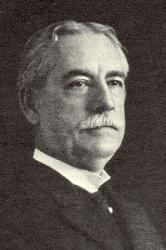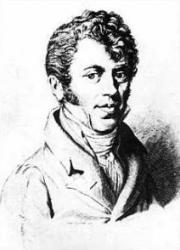Planning worship?
Check out our sister site, ZeteoSearch.org,
for 20+ additional resources related to your search.
- |
User Links
Person Results
James McGranahan

1840 - 1907 Composer of "[The Lord I will at all times bless]" in Bible Songs James McGranahan USA 1840-1907. Born at West Fallowfield, PA, uncle of Hugh McGranahan, and son of a farmer, he farmed during boyhood. Due to his love of music his father let him attend singing school, where he learned to play the bass viol. At age 19 he organized his first singing class and soon became a popular teacher in his area of the state. He became a noted musician and hymns composer. His father was reluctant to let him pursue this career, but he soon made enough money doing it that he was able to hire a replacement farmhand to help his father while he studied music. His father, a wise man, soon realized how his son was being used by God to win souls through his music. He entered the Normal Music School at Genesco, NY, under William B Bradbury in 1861-62. He met Miss Addie Vickery there. They married in 1863, and were very close to each other their whole marriage, but had no children. She was also a musician and hymnwriter in her own right. For a time he held a postmaster’s job in Rome, PA. In 1875 he worked for three years as a teacher and director at Dr. Root’s Normal Music Institute. He because well-known and successful as a result, and his work attracted much attention. He had a rare tenor voice, and was told he should train for the operatic stage. It was a dazzling prospect, but his friend, Philip Bliss, who had given his wondrous voice to the service of song for Christ for more than a decade, urged him to do the same. Preparing to go on a Christmas vacation with his wife, Bliss wrote McGranahan a letter about it, which McGranahan discussed with his friend Major Whittle. Those two met in person for the first time at Ashtubula, OH, both trying to retrieve the bodies of the Bliss’s, who died in a bridge-failed train wreck. Whittle thought upon meeting McGranahan, that here is the man Bliss has chosen to replace him in evangelism. The men returned to Chicago together and prayed about the matter. McGranahan gave up his post office job and the world gained a sweet gospel singer/composer as a result. McGranahan and his wife, and Major Whittle worked together for 11 years evangelizing in the U.S., Great Britain, and Ireland. They made two visits to the United Kingdom, in 1880 and 1883, the latter associated with Dwight Moody and Ira Sankey evangelistic work. McGranahan pioneered use of the male choir in gospel song. While holding meetings in Worcester, MA, he found himself with a choir of only male voices. Resourcefully, he quickly adapted the music to those voices and continued with the meetings. The music was powerful and started what is known as male choir and quartet music. Music he published included: “The choice”, “Harvest of song”, “Gospel Choir”,, “Gospel hymns #3,#4, #5, #6” (with Sankey and Stebbins), “Songs of the gospel”, and “Male chorus book”. The latter three were issued in England. In 1887 McGranahan’s health compelled him to give up active work in evangelism. He then built a beautiful home, Maplehurst, among friends at Kinsman, OH, and settled down to the composition of music, which would become an extension of his evangelistic work. Though his health limited his hours, of productivity, some of his best hymns were written during these days. McGranahan was a most lovable, gentle, modest, unassuming, gentleman, and a refined and cultured Christian. He loved good fellowship, and often treated guests to the most delightful social feast. He died of diabetes at Kinsman, OH, and went home to be with his Savior.
John Perry
James McGranahan
B. C. Unseld

1843 - 1923 Person Name: Benjamin C. Unseld Composer of "EUPHEMIA" in Psalter Hymnal (Blue) Benjamin Carl Unseld, 1843-1923
Born: October 18, 1843, Shepherdstown, West Virginia.
Died: November 19, 1923.
Buried: Elmwood Cemetery, Shepherdstown, West Virginia.
After leaving school at age 14, Unseld worked as a clerk in a country store. He received his first musical instruction around age 15, from a companion who had attended a singing school. He was shown the representation of the scale in the old Carmina Sacra, and had it sung for him. At the friend’s suggestion, he got permission from his pastor to practice on the church organ. Since both boys worked, their only chance to practice was after the store closed at 9:00 p.m., and occasionally at noontime. They went to the church together and took turns, one at the keyboard and the other at the bellows.
Shortly after the Battle of Antietam in September 1862, some of which Unseld witnessed, he left home and became a bookkeeper in the general offices of a railroad in Columbia, Pennsylvania. He sang in a choir, and gained further practice reading music. He rented a melodeon and spent much time in his room improvising on it. He bought a copy of Woodbury’s Harmony and Musical Composition, and studied it as well as he could without a teacher. He accepted an invitation to play the organ in the local Methodist church, on the condition that he received the tunes early in the week so he could learn them. This was his first position as an organist.
In the spring of 1866, he entered the Musical Institute in Providence, Rhode Island, conducted by Eben Tourjée (founder of the New England Conservatory in Boston, Massachusetts, and father of Lizzie Tourjée). There he studied voice, piano, organ, and harmony. After learning of Unseld’s business experience, Dr. Tourjée made him secretary of the school; in 1867, Unseld became the first secretary of the New England Conservatory.
Starting in 1870, Unseld attended schools led by Theodore F. Seward. There he met George Webb, Lowell Mason, James McGranahan, Charles Case, and other notables in the music community. In 1874, Unseld taught at Fisk University in Nashville, Tennessee, and helped train Fisk’s Jubilee Singers for their European trip. In 1877 and 1878, he was organist and choir master at St. James’ Episcopal Church, Lancaster, Pennsylvania.
In 1879, Unseld moved to New York City, and for 15 years taught, led choirs, composed and published. In New York, his musical headquarters was the publishing house of Biglow & Main Company, where he was in almost daily contact with the popular composers and teachers of the day: Ira Sankey, Horatio Palmer, Hubert Main, Robert Lowry, et al. In 1894, Unseld moved to Cincinnati, Ohio, and worked as an editor for the Fillmore Music House. In 1898, he moved to Dayton, Ohio, and worked in a similar capacity for the Lorenz Publishing Company. He moved back to New York City in 1901, then to Hagerstown, Maryland in 1905. He and his wife Sallie were apparently living in Tennessee as of 1920. Unseld’s works include:
The Choral Standard (New York: Fillmore Brothers, 1895)
Progress in Song, with E. T. Hildebrand (Cincinnati, Ohio: The Fillmore Brothers Company)
Unseld was inducted into the Southern Gospel Music Association Hall of Fame in 2004.
Sources--
Hall, pp. 239-44
Music--
Ancyra
Euphemia
He Is Risen
Hordville
Make Haste!
Meschach
Twilight Is Falling
Unseld
Wonderful Message
--www.hymntime.com/tch
B. C. Unseld
Sigismund Neukomm

1778 - 1858 Person Name: Sigismud Neukomm (1778-1858) Composer of "AMES" in The Hymnbook Sigismund Ritter von Neukomm, b. Salzburg, 1778; d. Paris 1858
Evangelical Lutheran Hymnal, 1908
Sigismund Neukomm


 My Starred Hymns
My Starred Hymns


